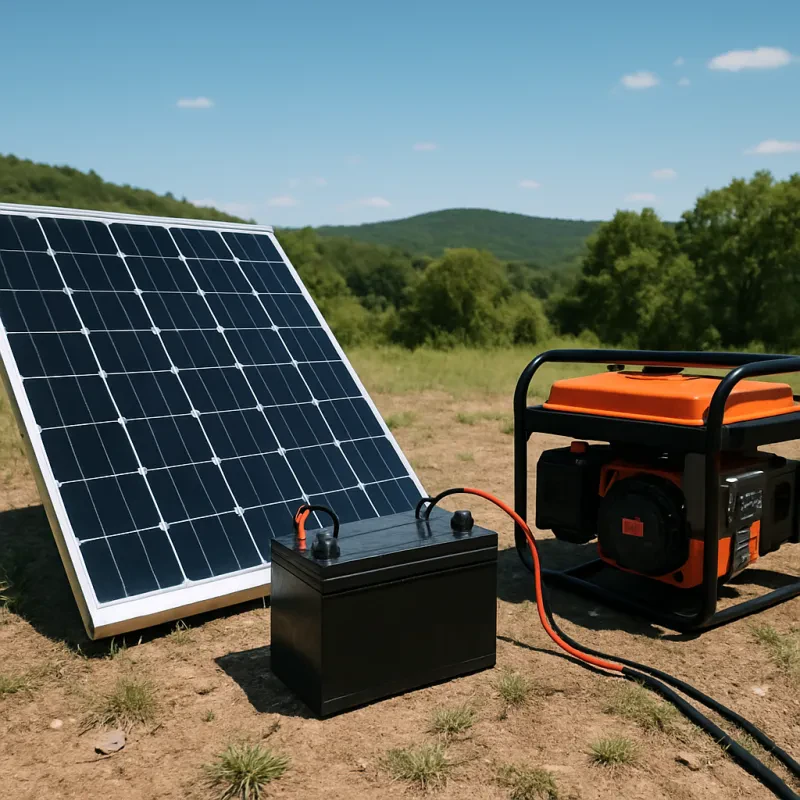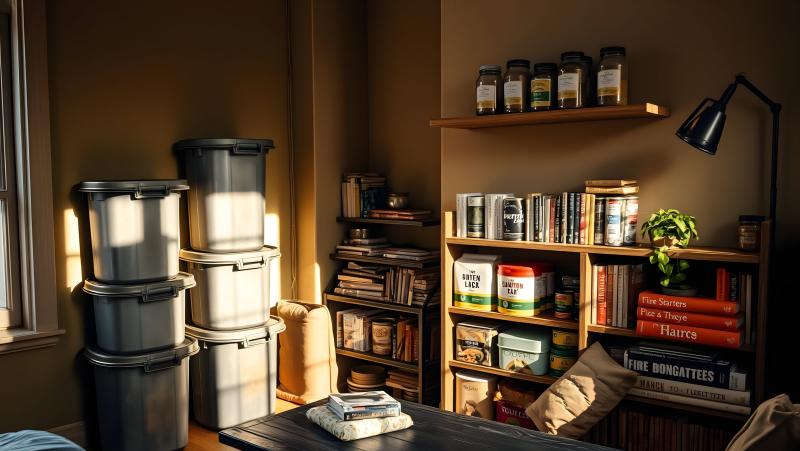City life comes with its own unique set of challenges, and being prepared for a disaster is no exception. From high-rise apartment buildings to sprawling public transportation networks, an urban environment requires a different set of survival skills and planning strategies. If you're an urban dweller, here's a guide to prepping for potential disasters.
Know Your Surroundings
First and foremost, understanding your urban environment is crucial. Know the layout of your city, including alternate routes to and from your home. You should be familiar with public transportation systems and have a mental map of the locations of important resources like hospitals, police stations, and grocery stores. Make sure to also identify potential hazards like industrial areas, flood zones, or areas with a high crime rate.
Essential Supplies
A well-stocked emergency kit is crucial for any prepper, urban or not. This should include food, water, medical supplies, a multi-tool, portable chargers, flashlights, and batteries. However, space is often a premium in city living, so it's important to focus on compact and versatile items. For instance, consider a water filter instead of large water bottles, or dehydrated foods that take up less space.
Food and Water
While urban environments are typically abundant in food and water supplies, these can quickly run out during a disaster. Learn about urban foraging: edible plants, fruits, and nuts that might be growing in your local park. Understand how to safely purify water, whether through boiling, chemical treatments, or a quality water filter.
Personal Safety and Security
Security can be a major concern in an urban disaster scenario. Ensure you have a plan for keeping your home secure. This might include reinforced doors, window security film, or even a safe room. Self-defense knowledge can also be invaluable, so consider taking a self-defense course or learning about legal self-defense tools.
Building a Community
In a dense city, cooperation and community can be your greatest resource. Building relationships with your neighbors can lead to shared resources and collective security. Consider organizing a neighborhood watch or disaster response group.
Evacuation Plan
Sometimes, the best response to a disaster is to leave. Have an evacuation plan in place, including multiple routes out of the city and a designated meeting place with family or friends. Keep a "bug out bag" packed with essentials you'd need for 72 hours.
Adapting to Your Environment
Ultimately, urban prepping is about adaptation. Cities are dynamic and complex, and successful urban prepping will require you to think on your feet and use the resources available to you.
From using solar-powered chargers to harness the sun on your apartment balcony, to learning the ins and outs of your city's public transportation for a quick evacuation, it's about making the city work for you.
While the challenges of urban prepping are unique, so too are the opportunities. With the right preparation and mindset, you can be ready for whatever comes your way, even in the heart of the city.
Building Urban Survival Skills
While having a stocked emergency kit and a plan is important, it is equally crucial to develop a set of survival skills tailored to the urban environment. Here's a look at some important ones:
Navigation
In the city, GPS may not always be available, especially during a disaster. Learning to navigate using landmarks, street layouts, and even the stars can be invaluable. Consider taking an orienteering course or using apps that teach navigation skills.
First Aid
Access to medical aid may be limited during a disaster. A basic understanding of first aid – like how to treat wounds, perform CPR, or recognize symptoms of common ailments – is essential. Consider taking a certified first aid course.
Urban Foraging
Urban environments can surprisingly provide a wide array of forageable foods, from parks, roadside trees, to community gardens. Learn to identify safe and edible plants, fruits, and nuts in your city. However, it's important to respect local laws and private properties while foraging.
Basic Repair Skills
In a crisis situation, you may need to fix a leaking pipe, board up a broken window, or even restore power. Knowing basic repair skills, like plumbing, carpentry, or electrical work, can be highly beneficial.
Fire Safety
In densely populated urban areas, a small fire can quickly become a large one. Knowing how to prevent fires, as well as how to extinguish them, is a vital skill. This includes understanding different types of fires and the appropriate type of fire extinguisher to use.
Mental Preparedness
Physical preparedness is important, but so is mental preparedness. Staying calm, making quick decisions, and being mentally resilient can make all the difference during a crisis. Techniques like mindfulness and stress management can help enhance your mental resilience. Consider joining a local group or online forum for urban preppers to share experiences and learn from others.
Long-Term Urban Prepping
Prepping is not a one-time event, but a lifestyle choice. It involves continuously updating your plans and supplies, improving your skills, and staying informed about potential risks in your area.
Disaster can strike when we least expect it. As an urban dweller, your prepping strategies and techniques might be different from those in rural areas. However, with the right knowledge, skills, and resources, you can be just as prepared to handle any disaster that comes your way. Remember, the goal of prepping is not to live in fear of what might happen, but to feel confident and secure in your ability to handle whatever does happen. With thoughtful urban prepping, you can achieve just that.


